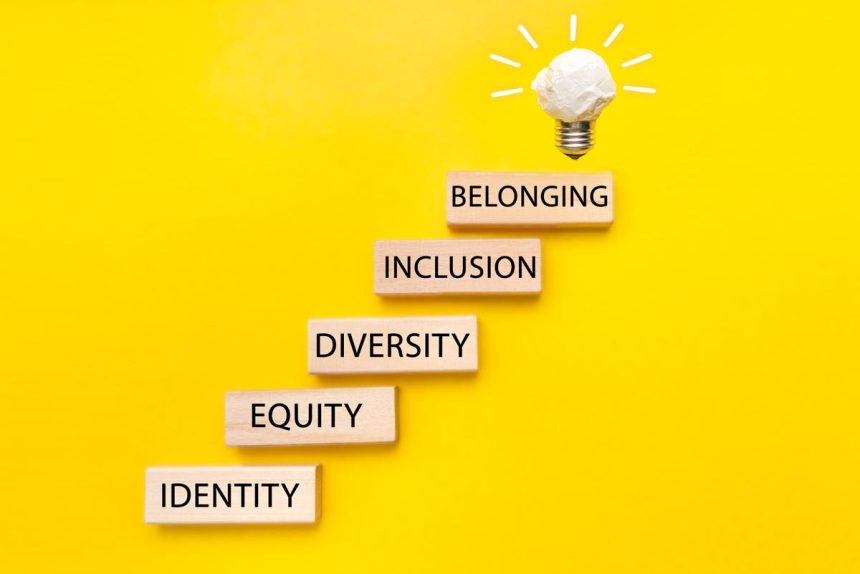Modern companies have gone a long way in their efforts to improve diversity, equity, and inclusion (DEI) within their organizations. DEI leaders are at the forefront of initiatives to ensure their organization successfully engages neurodiverse individuals and people of different races and genders.
But there’s still a long way to go. In fact, surveys reveal that 62% of workers feel that DEI programs are ineffective, and 46% say the programs have failed them personally. DEI leaders must understand and implement key actions to ensure their company’s initiatives succeed in 2023 and beyond.
1. There Needs to Be Accountability
One of the most frequently cited “failures” of DEI programs is a lack of accountability — or not having a consistent method for measuring whether specific DEI actions were truly effective.
As Lily Zheng writes for the Harvard Business Review, this is especially likely to occur when DEI leaders only measure inputs, such as holding racial sensitivity training, rather than measuring the outcomes of their DEI actions. This approach prevents true accountability and limits the potential for meaningful, lasting organizational change.
As Zheng advises, “Your organization should create tangible outcomes it aims to change tied to its DEI data and develop clear indicators and metrics to know when those outcomes have been achieved. For example, an effort to improve belonging should use employee surveys to measure and benchmark belonging scores, then set clear scoring goals for when the survey is deployed again a year later.”
By measuring outcomes rather than inputs, you’ll gain a true understanding of DEI success.
2. Belonging Must Be the True Intention
Research regarding how workers perceive DEI initiatives often notes that the company falls short in helping foster a sense of belonging among its employees. This could include women not feeling welcomed or respected in decision-making processes or individuals from a racial minority feeling like an outsider among their mostly-white peers.
The people who will have the greatest impact on an employee’s individual feelings of inclusion or belonging are their team members or manager who work with them daily. The farther removed you are from a particular employee due to the work structure or even where your office is located, the more communication and effort are required to foster that sense of belonging.
As a DEI leader, consistently displaying inclusive actions sets a precedent for workplace expectations. You must lead by example to demonstrate words and actions that cultivate a sense of belonging. Make it clear that you expect others to follow these same patterns to make inclusivity and belonging a core part of your work culture.
3. Emphasize the Hiring Process
“The first handshake, the initial interview, is where the DEI journey begins. And if you’re not authentically searching for a diverse spectrum right from the get-go, any subsequent DEI initiatives stand on shaky ground,” says DJ Nixon, founder of Apogee Influence. If your organization isn’t making concrete efforts to hire diverse employees, it will be hard to foster a sense of belonging and inclusion among the diverse team members you already have.
Nixon continues, “A team built with diverse mindsets holds immeasurable value, allowing us to tap into a plethora of experiences, insights, and perspectives. Traditional hiring practices must evolve, emphasizing potential more than just pedigree.”
In an interview with Hive, Ryan Agresta, founder of Candidate.co, says, “Traditional hiring practices can exclude historically underrepresented groups by, for example, valuing certain degrees while failing to take into account the access and privilege necessary to gain them.”
He explains that the hiring process should instead take a more holistic approach, focusing on candidate attributes that will lead to success rather than a specific list of work experiences. For example, one of the easiest ways to find more diverse, qualified talent is to simply remove the requirement for a bachelor’s degree to apply for a job.
Organizations should also look at talent pipelines and recruitment methods to find more diverse talent. This could include hiring individuals from apprenticeship programs or visiting regional universities or community colleges with a more diverse student population.
4. Be Prepared for Pushback
Any DEI initiative will likely result in political pushback in today’s contentious political environment. Indeed, many companies have decreased their mentions of DEI efforts in earnings calls, even as they continue to offer DEI training and other forms of support.
When DEI leaders read headlines discussing boycotts or other extreme actions taken by consumers against companies that have embraced DEI, it can be discouraging. Some might be tempted to give up on pushing these initiatives forward. However, the long-term outcomes for the organization — and its employees — will be well worth any temporary issues you might experience.
As Mark Cuban said recently, “You don’t need to call it DEI. You can call it whatever you want — I call it good business. It means taking the people you’re selling to and making sure your workforce looks like them, and making sure you can reflect their values and connect to that. That’s what works for me.”
Reminding company leadership about the long-term outlook for DEI may be necessary at times, but it will help ensure you achieve the best outcomes.
Making DEI a Success
Implementing a successful DEI program will likely have its fair share of obstacles. But DEI leaders cannot afford to be complacent. By constantly analyzing whether their initiatives are having a meaningful impact on the lives of their employees and looking for ways to improve further, DEI leaders can help foster a work environment that is welcoming and inclusive to all.
Read the full article here









